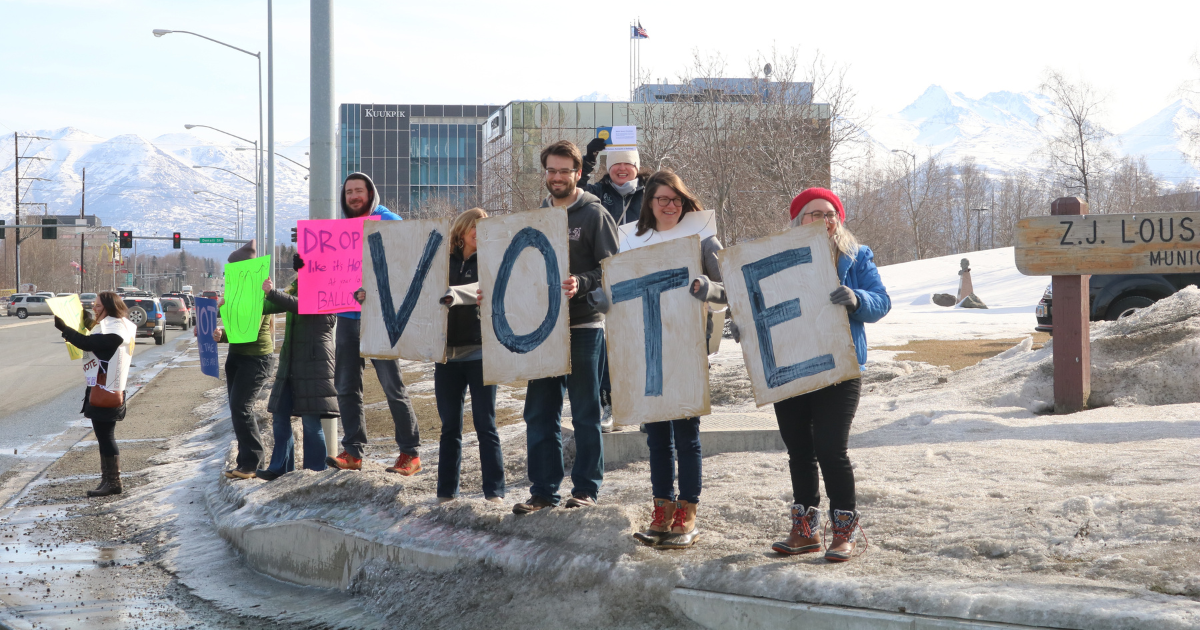2022 was a record-breaking year at Alaska polls for more reasons than one. Voters went to the polls for no less than four statewide elections, with a special primary and a special general election to fill the late Don Young’s seat, followed by a regular primary and regular general election. It was also our first year using ranked-choice voting (RCV) and open primaries, which Alaskans voted to implement by ballot measure in 2020.
The results of these changes were also monumental. Alaskans elected Mary Peltola as U.S. Representative not once but twice, and she is now our first-ever Alaska Native woman elected to Congress. Another success came from the formation of the Senate Bipartisan Majority in the Alaska Legislature, which is composed of Senators from both political parties who are willing to work together in the greater interests of the state.
Despite the successes of the most recent election, we still have a long way to go toward ensuring every Alaskan has access to voting. In both the August and November elections, ballots from several rural, mostly Native Alaskan villages were left uncounted due to mailing issues and polling places not opening. Additionally, following the June Special Primary, roughly 1 in 8 ballots were rejected in rural Alaska due to errors such as failing to include a witness signature. The failure to count thousands of Native votes in every statewide election this year follows a pattern of disenfranchisement of BIPOC voters in Alaska and around the country.
Looking forward to 2023, we must work hard to remedy these problems and maintain our gains. First, we must work to keep ranked-choice voting in place. RCV gives Alaskans more agency over their vote and encourages collaboration between candidates and politicians rather than division and antagonism. RCV is proven to be a simple system favored by most voters, and we must defend RCV against any attacks from extremist party interests.
We also hope to see measures for ballot-curing in Alaska. Ballot-curing allows voters to fix any issues with their ballot rather than simply rejecting spoiled ballots outright. This would ensure that trivial mistakes don’t prevent a vote from being counted. Additionally, we hope to see measures to decrease bureaucratic barriers to voting, such as eliminating the witness signature for mail-in ballots. By alerting voters of issues with their ballots - and removing as many areas for potential mistakes as possible - the Division of Elections can minimize the number of disenfranchised voters, particularly in underrepresented communities.
Many more voting reforms must be made to defend our democratic voting rights and stop voter suppression. We must increase poll worker training and wages to reflect the importance of the job and invest in face-to-face assistance at the polls. We must streamline absentee voting by including free postage in all mail-in ballots to remove all financial barriers to voting. We must give workers time off on election day so that no one has to choose between their job and voting. And we must allow for same-day registration on election day.
As we approach the beginning of the Legislative Session, we must demand that ranked-choice voting remains in place alongside changes to Alaska’s election system that will stop voter suppression and expand access to voting. Our senators and representatives are in Juneau because we, the voters, sent them there. It’s their job and ours to make sure every Alaskan has the freedom to vote.
Carly is the Voter Outreach and Engagement Fellow for the Alaska Center.
She is grateful to have been born and raised on Dena’ina lands.

